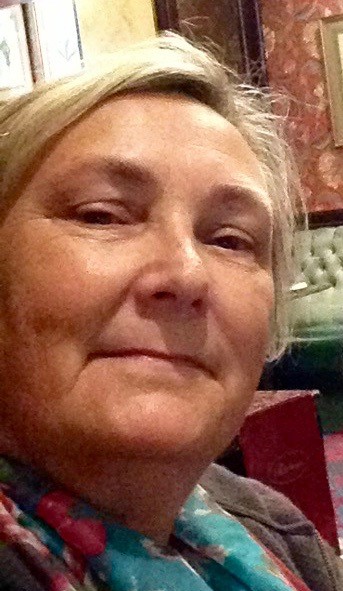
Listening to Chris Cotter and his panelists – Suzanne Owen, Vivian Asimos, and Tim Hutchings – bring up some compelling issues relating to religion and media, I was struck at how integral media is to the message of religion and worthy of academic study. My own faith, Christian Science, would not exist if the founder, Mary Baker Eddy, hadn’t found a medium through which to share her insights. In spite of the difficulties facing a woman writing on religious matters in the late nineteenth century she wrote and published her book, Science and Health with Key to the Scriptures, to crystalise her teachings.
Media is a way a religion presents itself both to its own adherents and to the world beyond. In the podcast, Tim Hutchings brought up the question of how religion and media need not be seen as two separate issues that occasionally meet, but that religion can be reconceived as a kind of mediation itself. In fact, religion is always a mediator or a set of practices of mediation between the human and the divine. This can give it authority for its adherents who see it as trustworthy. However, while it brings an understanding of the faith to the believer, this very same medium can be less fathomable to the outsider because of the use of particularised language, lack of in depth understanding of the teachings, and so on.
This podcast centres mainly on social media, which might be seen to be a way of bridging the gap, but it raises as many issues as it solves. Social media is often less representative of mainstream religions, being more the province of individuals expressing and finding their religion in their own unique way. The speakers on the podcast discovered various issues relating to social media such as isolationism, the anonymity of user names, and concern by those who remain with the more traditional physical forms of worship. These findings are echoed by Christopher D Cunningham in his recent article in Public Space magazine, where he observes,
Social media has provided a venue to channel religious fervour without institutional oversight. The effect has been a democratisation of religion. This approach takes church out of religion, undercutting churches’ authority (and ability) to control a narrative and maintain doctrinal boundaries.
Tim discovered this in his research with Christian groups who use digital media. He was faced with the question of who gets to decide if this new manifestation of church online is the true church. He noted the relationships and emotional commitments that the online church group members make feel very real to them. But he also found that those members of the church who maintained the more traditional worship in physical places felt that they were the ‘real’ church. This raises the wider issue of who defines a religion, especially in relation to these new online versions, Tim’s solution is to let the group itself decide.
@amishbek#Pennsylvania I’m Amish♬ original sound – user444597131867472
Above, teen Rebecca Fisher maintains a popular TikTok account. Though her parents were Amish, they left the church when Fisher was a young child, but she considers herself Amish and says she attends an Amish church in Lancaster, Pennsylvania. Most Amish communities discourage the use of cell phones outside of business and medical or other emergency reasons, and photographs and videos of individuals are also discouraged. Still, the use of social media is increasing, especially among teens who have not yet been baptized and who are permitted, before choosing to join the church, to engage in popular culture in ways more familiar to their “English” (non-Amish) peers.
Identification is a significant issue in religious scholarship because misunderstanding can have adverse, wider consequences, such as misleading stereotypes and prejudice. In my position in the Christian Science Committee on Publication, an office that reviews media discourse about the denomination, I regularly see my faith freely defined by others – church leaders, academics, journalists, writers, playwrights, novelists and so on – often inaccurately and sometimes in ways that are simply wrong and misleading. This is not new and certainly not confined to Christian Science. So I can’t help seeing value in Tim’s approach of allowing the group to define itself and listening to them, free of judgment, to find out who they are and what is important to them.
Churches have always used the media to nurture and educate their members. Today their use of the new digital media may sometimes be clumsy, not well understood, and subject to failure at times, as Tim has seen in his research, but it is the current and future manifestation of the way many religions and religious people want to share and make themselves known. Tim’s arguments to his university asking them to support his research into religion and digital media are not only valid but essential because, as he says, it offers a lens into studying what really matters in religion “”whatever that might be.” By extrapolation, studying all the media resources of any religion will cast light on them in a real and profound way. It is how they express themselves – their beliefs, practices, relationships. But the challenge for researchers is to allow religious groups to speak for themselves and not to interpret them through their own particular bias. To gain a clear view of religion from their media takes sensitivity, patience, listening and reflexivity, and this is not easy.



